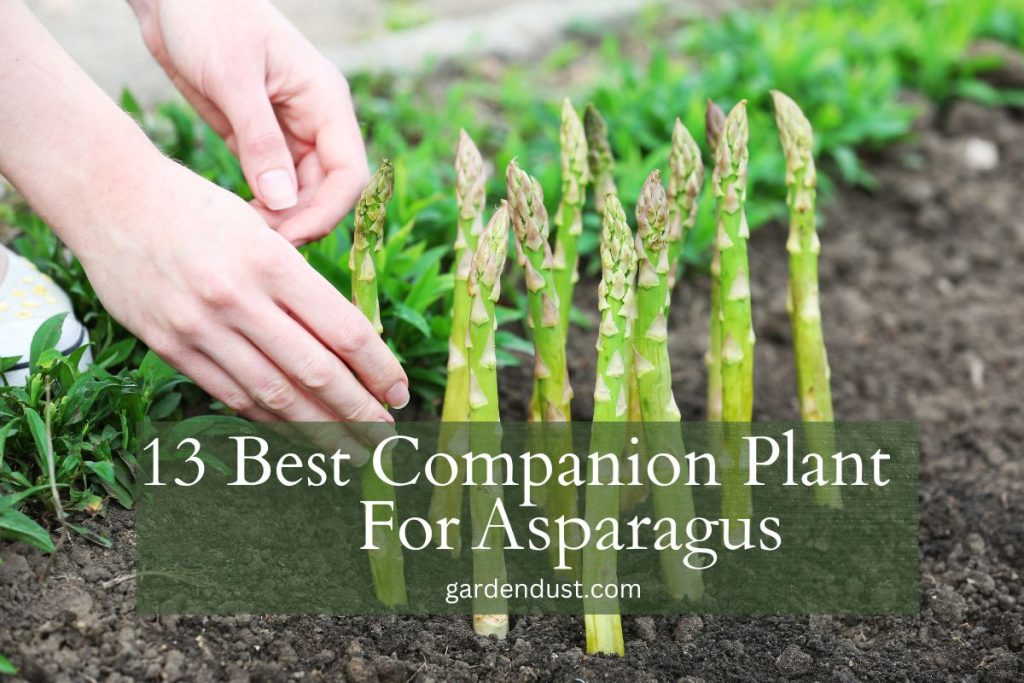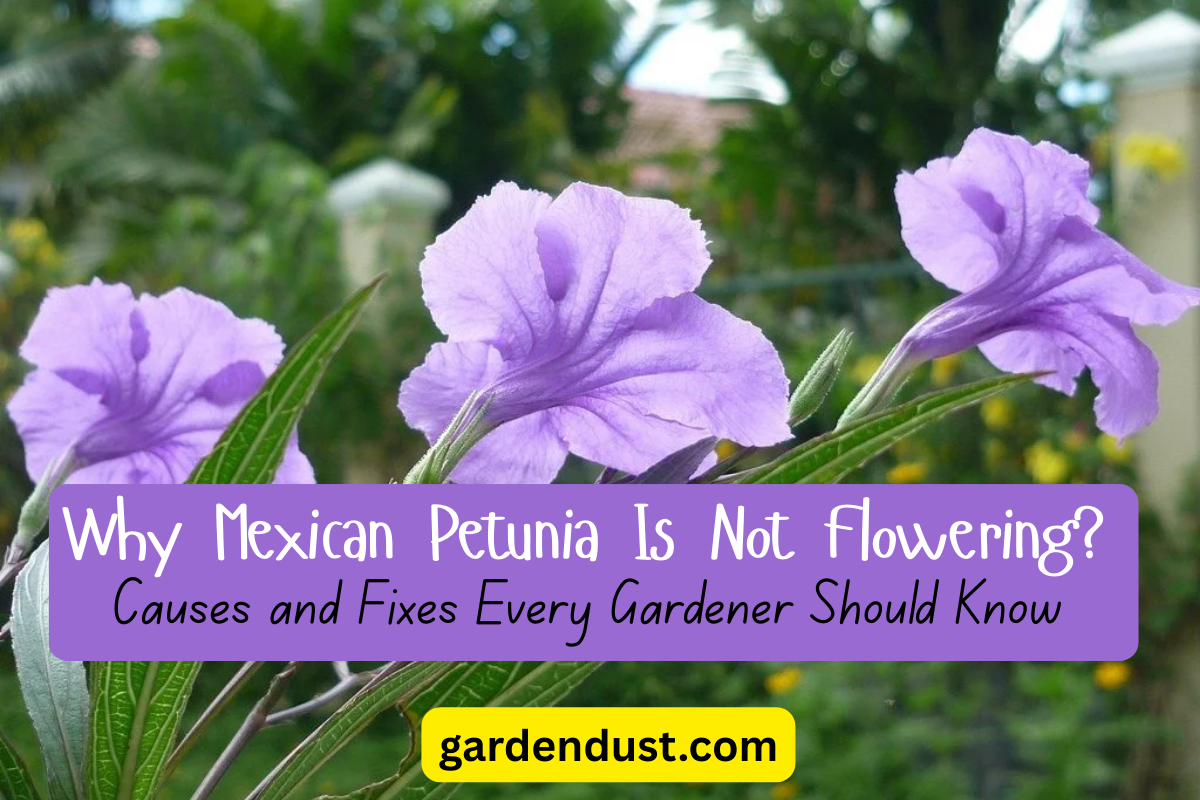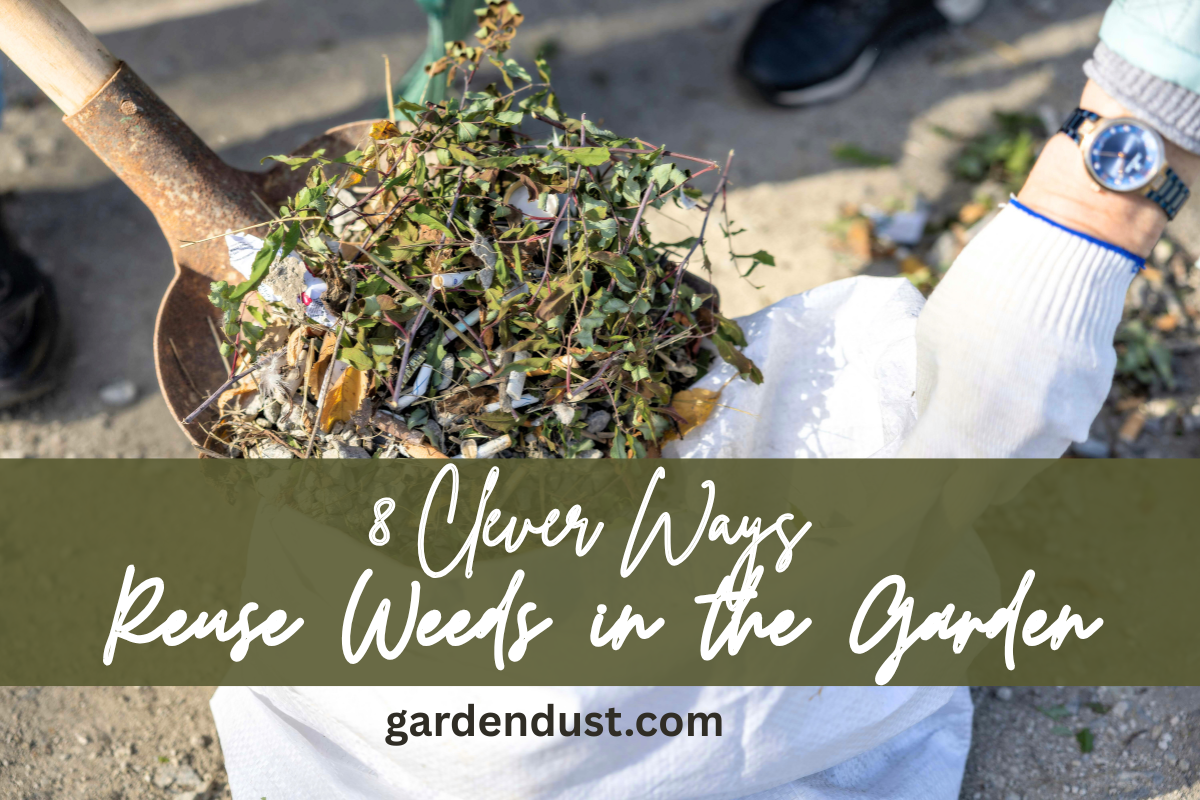Asparagus, with its succulent spears and distinctive flavor, is a favorite among gardeners and culinary enthusiasts alike. To maximize the health and productivity of your asparagus bed, consider implementing companion planting strategies. Companion planting involves strategically placing plants that benefit each other when grown in close proximity. In this article, we’ll explore the 13 best companion plants for asparagus, enhancing its growth, deterring pests, and promoting a thriving garden ecosystem. Let’s start….
Companion Plant For Asparagus
1.Tomatoes (Solanum lycopersicum)
READ ALSO:-15 Best Companion Plants for Tomatoes

Tomatoes are renowned for their compatibility with asparagus. These sun-loving vegetables share similar soil preferences and growth habits. While asparagus thrives in slightly acidic soil, tomatoes appreciate the same conditions. Additionally, tomatoes release solanaceous alkaloids, natural compounds that deter asparagus beetle larvae, a common pest that can threaten the health of your asparagus plants.
2.Basil (Ocimum basilicum)
Basil not only enhances the flavor of your culinary creations but also serves as an excellent companion for asparagus. The aromatic oils released by basil plants can help repel aphids, mosquitoes, and other harmful insects that might otherwise disturb the growth of your asparagus bed. Plant basil around the perimeter of your asparagus patch for optimal protection.
3.Marigolds (Tagetes spp.)
READ ALSO:-7 BENEFITS OF PLANTING MARIGOLD IN YOUR GARDEN

Marigolds are well-known for their ability to repel nematodes, microscopic soil-dwelling pests that can negatively impact asparagus roots. Planting marigolds around your asparagus bed forms a protective barrier against nematodes, ensuring the health and vigor of your asparagus plants. Choose French or African marigold varieties for the best nematode-repelling effects.
4.Nasturtiums (Tropaeolum majus)
READ MORE:-How To Grow And Care For Nasturtiums

Nasturtiums are not only visually appealing with their vibrant flowers but also serve as effective companions for asparagus. These trailing plants act as a natural deterrent for aphids and other pests, safeguarding your asparagus from potential infestations. Additionally, nasturtiums are edible and can be a delightful addition to salads, providing a dual-purpose benefit to your garden.
5.Parsley (Petroselinum crispum)
Parsley, with its rich green foliage and versatile culinary uses, makes an excellent companion plant for asparagus. It attracts beneficial insects such as hoverflies and predatory wasps, which help control harmful pests like aphids and caterpillars. The presence of parsley in your garden contributes to a balanced and thriving ecosystem, promoting the overall health of your asparagus crop.
6.Chives (Allium schoenoprasum)
READ MORE:-How To Grow And Care For Chives
Chives, belonging to the onion family, offer several advantages when grown alongside asparagus. Their pungent aroma helps repel aphids and other insects that could potentially harm asparagus plants. Chives also deter pests like slugs and snails, providing an additional layer of protection for your asparagus bed.
7.Calendula (Calendula officinalis)
READ ALSO:-13 Uses Of Calendula For Your Garden
Calendula, commonly known as pot marigold, is another companion plant that brings both beauty and functionality to your garden. Its bright orange and yellow flowers attract pollinators, enhancing the fertility of your asparagus crop. Moreover, calendula’s antimicrobial properties can help prevent soil-borne diseases, promoting a healthier growing environment for your asparagus.
8.Dill (Anethum graveolens)
READ MORE;-How To Grow And Care For Dill Plant
Dill is a versatile herb that complements the growth of asparagus while attracting beneficial insects like ladybugs and parasitic wasps. These insects play a crucial role in controlling harmful pests such as aphids and caterpillars. Planting dill near your asparagus bed not only adds a flavorful herb to your culinary repertoire but also contributes to a more balanced and pest-resistant garden.
9.Beans (Phaseolus spp.)

Beans, such as bush beans or pole beans, make excellent companions for asparagus due to their nitrogen-fixing abilities. Asparagus is a nitrogen-loving plant, and beans have the capacity to convert atmospheric nitrogen into a form that benefits nearby plants. Interplanting beans with asparagus helps enhance the soil fertility, promoting healthier and more vigorous growth.
10.Garlic (Allium sativum)
Garlic is a natural pest deterrent that can help protect your asparagus from various threats. Its strong aroma repels aphids, spider mites, and other pests that may otherwise harm the delicate spears of your asparagus plants. Planting garlic around the edges of your asparagus bed creates a barrier against unwanted insects and contributes to the overall well-being of your garden.
11.Oregano (Origanum vulgare)
READ MORE:-How To Grow And Care For Oregano Plant
Oregano is a hardy herb that offers both culinary and companion planting benefits. Its aromatic oils can help repel pests like aphids and spider mites, safeguarding the neighboring asparagus plants. Plant oregano near your asparagus bed to create a natural barrier against unwanted insects while enjoying the flavorful addition to your culinary creations.
12.Horseradish (Armoracia rusticana)
Horseradish is an excellent companion for asparagus, primarily due to its ability to repel pests like aphids and flea beetles. The pungent compounds released by horseradish plants act as a natural deterrent, protecting your asparagus from potential infestations. Plant horseradish at the edges of your asparagus bed to create a barrier that discourages pests from approaching.
13.Sage (Salvia officinalis)
READ MORE:-How To Grow Sage Plant
Sage is a fragrant herb that can contribute to the well-being of your asparagus patch. Its aromatic leaves repel pests like cabbage moths and carrot flies, providing an additional layer of protection for your asparagus plants. Plant sage strategically throughout your garden to create a pest-resistant environment that supports the overall health of your crops.
Incorporating companion plants into your asparagus bed not only enhances the aesthetics of your garden but also promotes a healthier and more productive growing environment. The 13 companion plants mentioned in this article offer various benefits, from deterring pests to improving soil fertility and attracting beneficial insects. By carefully selecting and arranging these companions, you can create a harmonious garden ecosystem that maximizes the yield and flavor of your prized asparagus crop. Happy Gardening….







